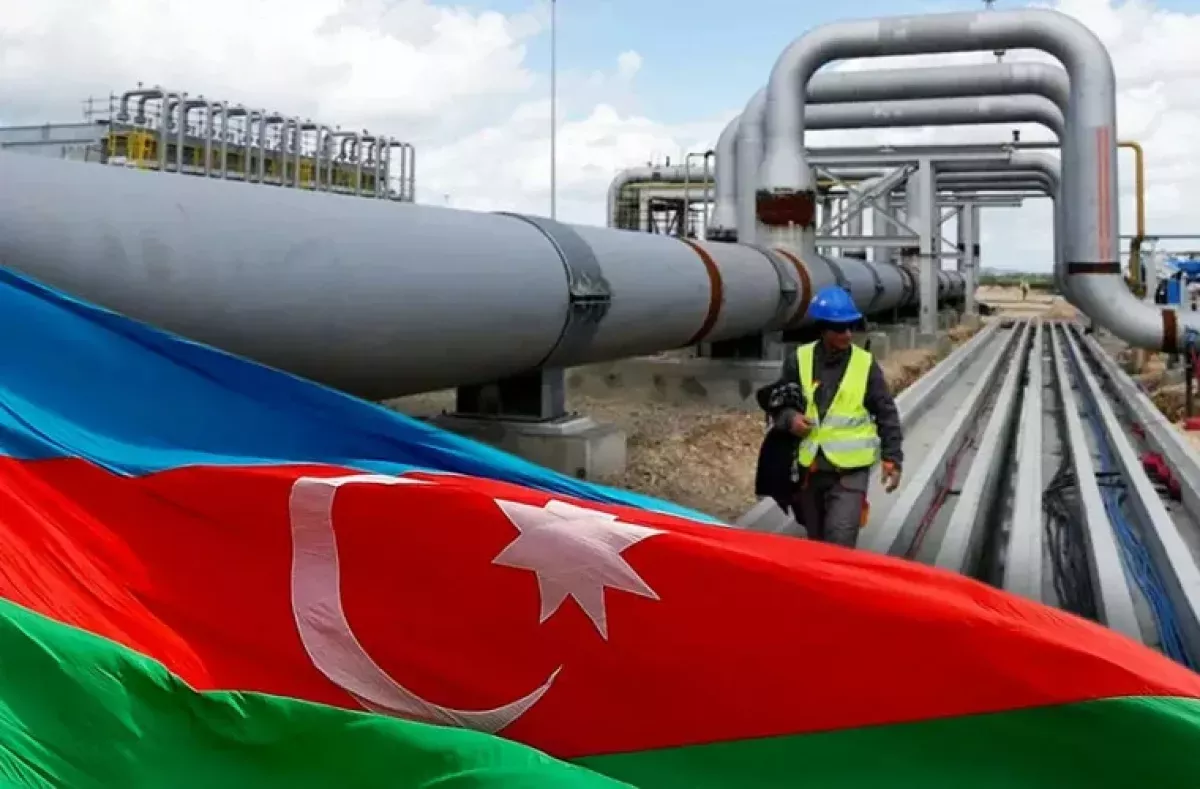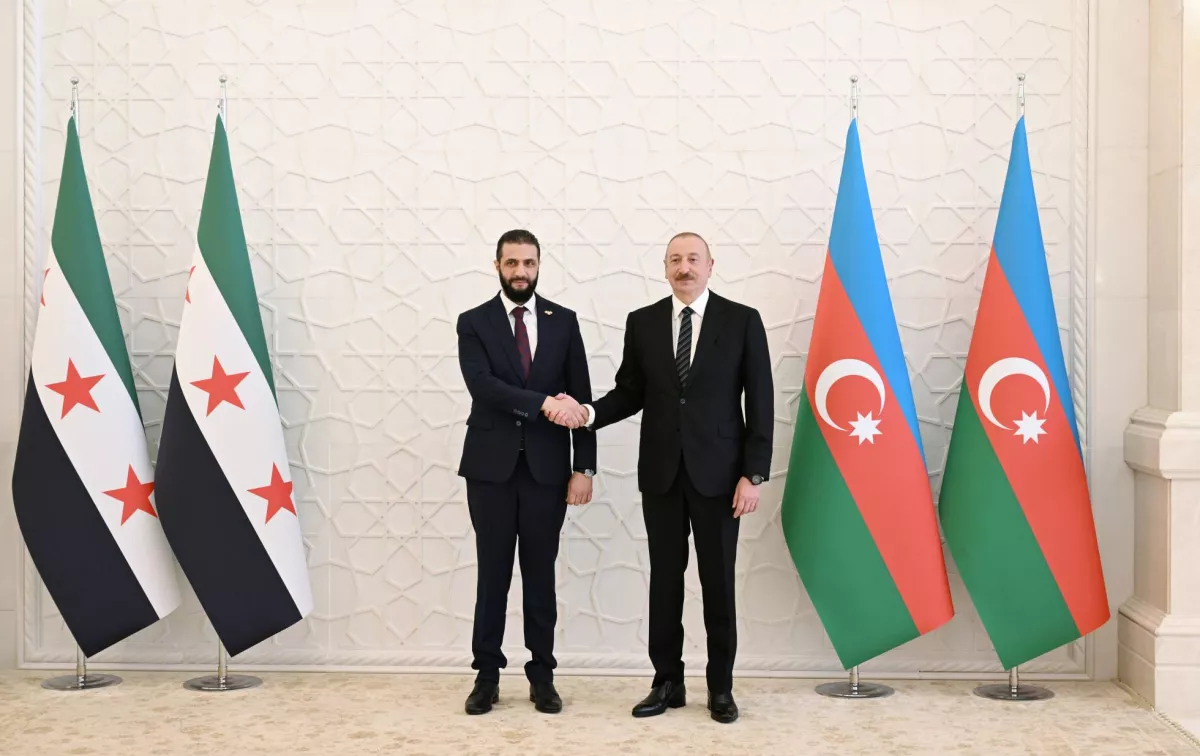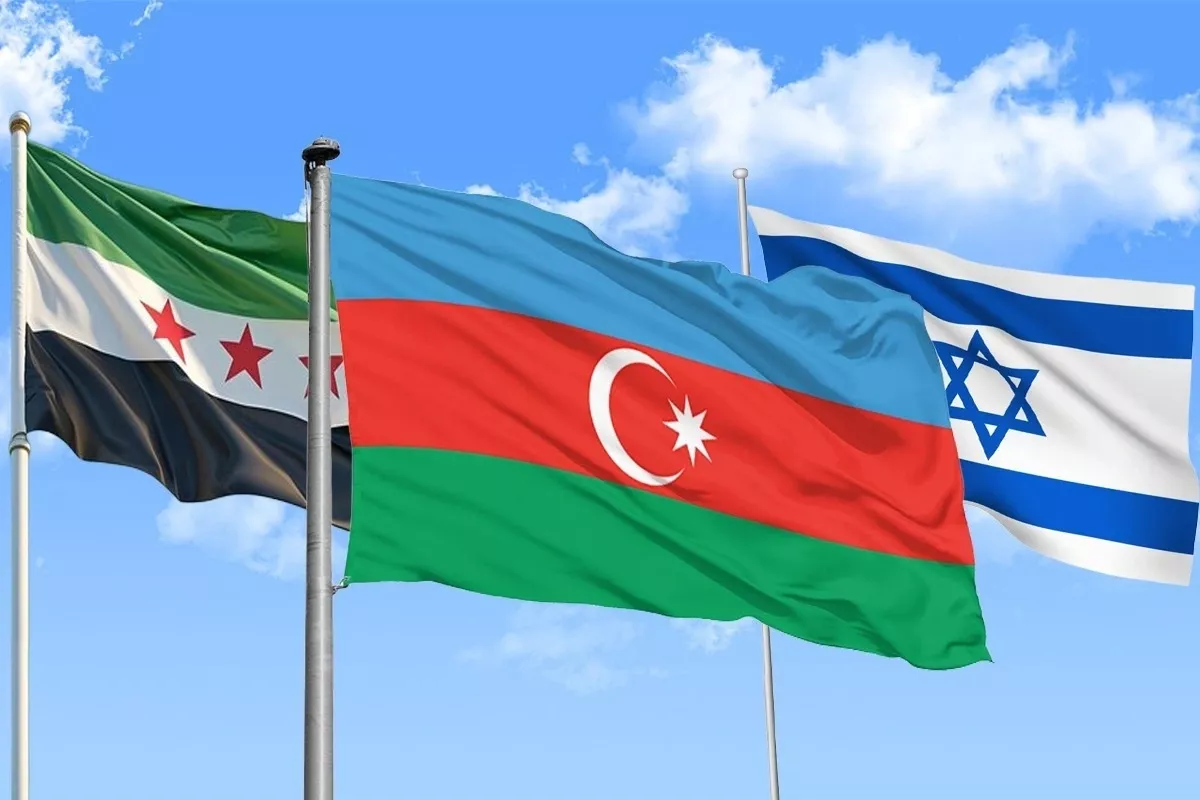Gas, gold, geopolitics: How Azerbaijan could shape Syria’s future Article by The Jerusalem Post
The Israeli newspaper The Jerusalem Post has published an article on Azerbaijani-Syrian relations. Caliber.Az reprints some excerpts from this material.
“As the region undergoes swift economic and geopolitical change, Syria is looking to establish new avenues of cooperation to help revive its economy, which has been in crisis for more than a decade. In this effort, Azerbaijan has emerged as a promising and significant partner, particularly in the energy and precious metals sectors.
Following the signing of a memorandum of understanding to supply Syria with natural gas, discussions have resurfaced about a new phase in bilateral relations—one that restores long-broken ties and opens the way for extensive economic and political cooperation. Over the past two years, Syrian-Azerbaijani relations have seen notable progress after a prolonged period of stagnation.

The most significant development was an agreement to deliver Azerbaijani natural gas to Syria via Turkish territory, as part of Baku’s broader plan to expand its energy exports across the Middle East. Announced in July 2025, the deal provides for the supply of roughly 3.4 million cubic meters of gas per day, gradually increasing to between 1 and 2 billion cubic meters annually. The additional supply is expected to help restart idle power plants and ease pressure on Syria’s strained energy sector.
This partnership reflects a new Syrian strategy to diversify its economic relationships. It is also part of a broader government plan to revitalize the gold and precious metals sector, seen as a key source for generating hard currency.
Dr. Ibrahim Qoushji, a banking and economic expert, told The Media Line that cooperation with Azerbaijan provides a rare opportunity for Syria to reintegrate itself into the regional trade network, especially in sectors considered among the main drivers of growth, such as energy and gold jewelry. He added: ‘If the file is managed through clear institutional mechanisms, it can help stimulate Syrian exports and restore part of the lost monetary reserves, especially if the exchange is priced in national currencies or through direct exchange agreements.’
Qoushji noted that the Syrian banking sector must keep pace with this openness by modernizing electronic payment systems and opening external banking communication channels, considering that ‘the Syrian economy needs practical partnerships, not slogans, and Azerbaijan is a suitable gateway for that.’
The significance of Syrian-Azerbaijani cooperation goes beyond economics, carrying important political implications as well. Analysts note that Baku aims to expand its influence in the Middle East by forging balanced partnerships with countries beyond its traditional sphere, while Damascus views this cooperation as a chance to end its regional isolation and reclaim a role in the emerging geopolitical order.
Dr. Samer Al-Khatib, professor of international relations at the University of Damascus, explained this dimension in an interview with The Media Line, saying: ‘The relationship with Azerbaijan represents for Syria both a political and economic window, as it is a Muslim country with balanced relations with Türkiye, Iran, and Russia, making it a point of equilibrium in the region's interactions.’

He continued: ‘From a geopolitical perspective, the entry of Azerbaijani gas into Syria means expanding the circle of regional interests within Syrian territory, which grants Damascus wider room for maneuver in its international relations and lays the groundwork for potential security and technical cooperation.’
In recent years, as the regional landscape has shifted, new signs of rapprochement have emerged between Syria and Azerbaijan. Baku has expressed interest in contributing to Syria’s reconstruction, particularly in the energy and infrastructure sectors, while Damascus has shown willingness to facilitate Azerbaijani investments and share technical expertise. Analysts view this warming of ties as a quiet diplomatic realignment driven more by economic pragmatism than by past political alliances.
Observers suggest that Syrian-Azerbaijani cooperation could evolve into a model for regional economic integration if managed with flexibility and transparency. Azerbaijan offers extensive energy resources and experience in infrastructure, ports, and logistics, while Syria’s strategic location on the Mediterranean makes it a potential transit hub for energy and trade routes linking the Middle East to Europe. Cooperation could also extend into agriculture, technology, and port development, advancing shared economic goals and contributing to broader regional stability.
Syrian-Azerbaijani cooperation appears to go far beyond a single gas deal or temporary economic initiative. It signals a broader shift in Syria’s regional relationships and a concerted effort to move past years of financial and political isolation. If both sides can turn their agreements into concrete projects and effectively leverage Azerbaijan’s expertise in energy and industry, this partnership could emerge as a new model of Middle Eastern cooperation—one that moves beyond rhetoric to deliver real, measurable outcomes.
Adelkhan Gadilishiev, an analyst at the Eurasian Integration Institute, told The Media Line that ties between Azerbaijan and Syria are now a key component of Baku’s evolving policy toward the Middle East.
‘Following the directives of President Ilham Aliyev,’ he said, ‘Azerbaijani delegations have visited Syria to express our country’s support for its reconstruction, rebuilding, and recovery efforts.’
He stressed that ‘Baku received extremely positive messages from Damascus in this regard," adding that ‘President Ilham Aliyev’s personal influence paved the way for other countries to establish new partnership models with Azerbaijan.’

He added that Azerbaijan, with its experience in mediation, could draw on its strong ties with both Israel and Syria to serve as a bridge for dialogue between Damascus and Tel Aviv. He noted that such efforts would not be limited to improving relations between the two countries but could also help advance a broader and lasting peace across the region,” the article reads.








